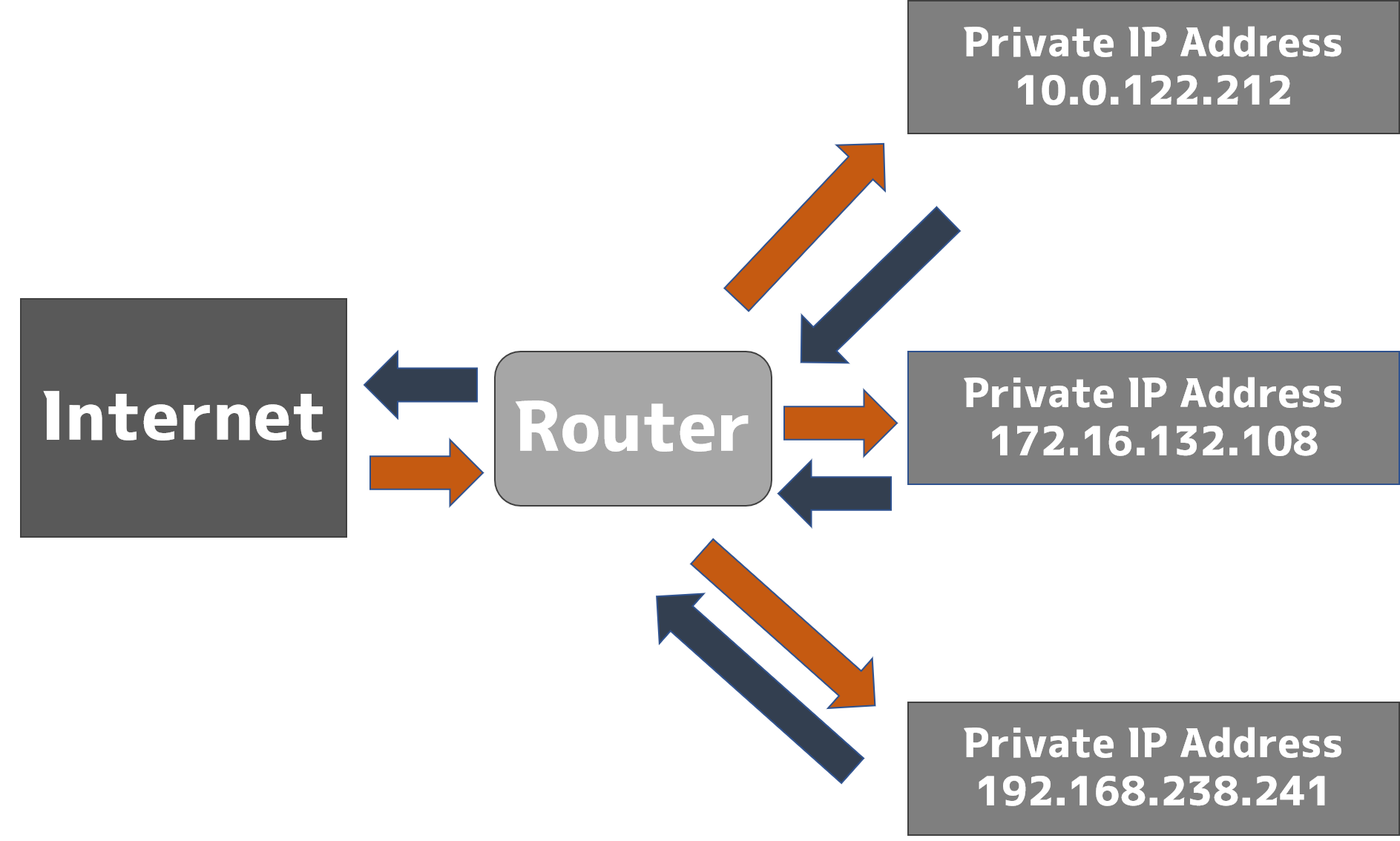In this article, we will introduce global and private IP addresses based on IPv4, the mainstream IPv4.

Top > Network > Introduction of network > Global and private IP addresses
Global and private IP addresses
Global IP address
The first is a global IP address.
A global IP address is an address that can be used anywhere in the world, and is designed to ensure that data can be sent and received from anywhere in the world without error or duplication. This global IP address is managed globally by an organization called ICANN, which does not belong to any particular country or region, and addresses are assigned to users by an organization called JPNIC in the case of Japan. A global IP address is represented by four pairs of 256 numbers from 0 to 255, XXX.XXX.XXX.XXX. However, there is a limit to the number of these combinations, and there is a problem of address exhaustion.

Private IP addresses
The second type of address is a private IP address.Private IP addresses are always assigned to either "10.x.x.x," "172.16.x.x to 172.31.x.x," or "192.168.x.x." Private IP addresses can only be used for communication within an organization, i.e., within a limited range, and are converted to a global IP address through a router when connecting to the Internet.

Global and private IP addresses
PCs and smartphones are assigned a private IP address, which is converted to a global IP address through a router when attempting to connect to the Internet. However, this process is rather complicated, and some people may not understand what a global IP address and a private IP address are. Let's think of a global IP address as an outside telephone line and a private IP address as an inside telephone line. In a limited area, such as a school or a hotel, calls are made using an extension number, while calls to people in other distant places are made using an outside line number. This is exactly the difference between a global IP address and a private IP address. Remember that a global IP address is for outside lines and a private IP address is for inside lines!
The next section describes two ways of assigning IP addresses.


Dynamic (variable) IP address
First of all, let's take a look at the dynamic (variable) IP address. This IP address is distributed by the ISP (Internet Service Provider) as a new IP address each time you connect to the Internet and is usually assigned when you use your PC or smartphone. The address number is changed after a certain period of time or each time you disconnect from the Internet. Since the address is automatically assigned by the ISP, no special connection is required, and the risk of user identification is low since the number changes frequently.

IP address changes after a certain period of time or reconnection
Fixed (constant) IP address
On the other hand, an IP address that always connects to the Internet with a fixed IP address is a fixed (immutable) IP address. This IP address has a fixed number so that only a specific person can access the company's system.
Unlike a dynamic (variable) IP address, it must be manually configured when connecting to the Internet, but there are many situations where this IP address is needed, such as remote control.

It does not change after a certain period of time or reconnection


